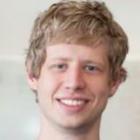Adam Bouland: Thesis Defense: The space around BQP
The first part of this thesis examines the space "below BQP” and describes a number of sub-universal models of quantum computation which can nevertheless perform sampling tasks which are difficult for classical computers. We show that prior models maintain hardness when their set of quantum operations is restricted, and describe two new models of “weak” quantum computation which also show advantage over classical devices. A major theme in this work is that almost any weak device can perform hard sampling tasks. We find that almost any model which is not universal, but not known to be efficiently classically simulable, admits a speedup over classical computing for sampling tasks under plausible assumptions. This work can be seen as progress towards classifying the power of all restricted quantum gate sets.
On the other hand, recent developments in quantum gravity have opened up the possibility of modifying quantum mechanics to resolve the black hole information paradox. Inspired by these debates, the second part of this thesis explores the space “above BQP” - i.e. the power of quantum computers in the presence of modified theories of quantum mechanics. We find that almost all modifications allow for drastically more power than BQP, and find that these speedups may be related to superluminal signaling in these models. Surprisingly, we find one model which is merely just a bit more powerful than BQP. Inspired by this model “just above” BQP, we study and resolve an open problem in classical complexity related to the power of statistical-zero knowledge proof systems.

